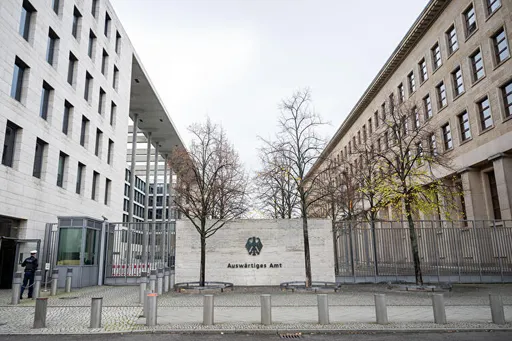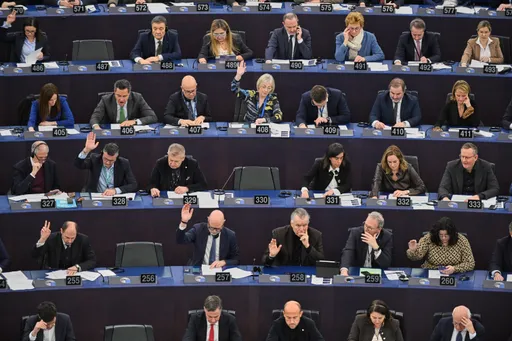Thousands of Indonesian students and workers have protested against a new law they say will cripple labour rights and harm the environment, with some clashing with police.
Authorities on Wednesday in Bandung, the capital of West Java province, blocked streets leading to the local parliament building and city hall, where clashes between rock-throwing students and riot police broke out late on Tuesday when police tried to disperse the protesters.
On Wednesday, more than 3,000 protesters, including workers and high school and university students, attempted to reach the heavily guarded parliament building.
Protesters set fires to tires near blocked streets.
The new Job Creation Law, which was approved on Monday, is expected to bring radical changes to Indonesia’s labour system and natural resources management. Critics fear it will reduce severance pay, remove restrictions on manual labour by foreign workers, increase the use of outsourcing, and convert monthly wages into hourly wages.
It amended 79 previous laws, including the Labor Law, the Spatial Planning Law and Environmental Management Law.
READ MORE: Indonesian student dies in law-change protests
Radical changes?
Smaller protests also occurred in other Indonesian cities, including in Jakarta’s satellite cities of Tangerang and Bekasi where large factories are located, and many cities on Sumatra and Sulawesi islands.
Thousands of workers from factories in West Java’s Karawang city and Serang town in Banten province also protested outside their factories.
Police in the capital, Jakarta, prevented labour groups from holding a mass rally in front of Parliament.
New law
The new law is intended to improve bureaucratic efficiency and cut red tape as part of efforts by President Joko Widodo's administration to attract more investment in the vast archipelago nation, home to more than 270 million people.
Seven parties in the House of Representatives approved the legislation while two others rejected it, with their members walking out of the plenary session.
The Confederation of Indonesian Trade Unions, known as KSPI, said about 2 million workers representing 32 labour unions would take part in mass rallies and strikes in various cities for several days starting Tuesday.
READ MORE: Widodo declares victory in Indonesia election
'Detrimental to workers'
KSPI President Said Iqbal released a statement saying the new law will hurt workers, including by reducing severance pay, removing restrictions on manual labour by foreign workers, increasing the use of outsourcing, and converting monthly wages into hourly wages.
“We reject the entire contents of the omnibus law which is very detrimental to workers,” Iqbal said.
"It must be cancelled immediately. The workers are already suffering a lot from the Covid-19 crisis.”
Indonesia, Southeast Asia’s largest economy, is eagerly courting foreign investors as key drivers of economic growth in a nation where nearly half the population is younger than 30.
Last year, Widodo said that he will push ahead with sweeping and potentially unpopular economic reforms, including a more business-friendly labour law, in his final term because he is no longer constrained by politics.
“In the next five years I have no political burden so in making a decision, especially important decisions for the country, in my opinion it will be easier,” Widodo said.























